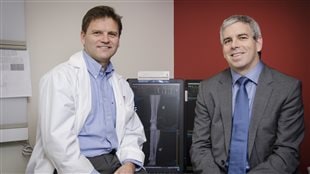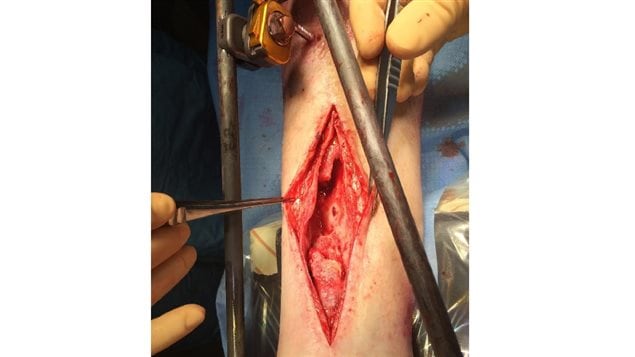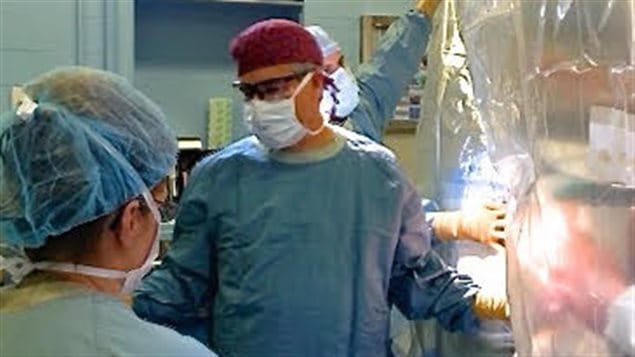It is a surprising new finding, and one that has very significant implications for surgery.
Research showed that using a simple saline solution is better for cleaning deep wounds and fractures compared to the long-established practice of washing with a soap and water mix under high pressure.
Dr Edward Harvey (M.D, MSc) is the chief of Orthopaedic Trauma at the McGill University Health Centre (level-1 trauma centre) and a professor of surgery at McGill University. He is a co-author of the research paper
Listen
The study was a major undertaking. It involved ten years of research, over 2,400 patients with open fractures, 41 different medical centres and five countries: India, Norway, the USA, Australia, and Canada. The majority of the patients were male, and involved mostly leg fractures and were typically as a result of motor vehicle accidents.
The researchers led by McMaster University in collaboration with the Research Institute of the McGill University Health Centre (MUHC) were keen to learn the best way to clean deep wounds such as open fractures. The long-time and accepted practice is to use a mix of soap and high pressure water.
In doing randomized washings of the many patients, some patients wounds were washed with the soap and water, and some with only the saline solution, and a variable was the water pressure rate; i.e., gravity, medium pressure, high pressure.
A later 12-month follow up analysed the results of incidence of post-op infections, slow healing, and the possible need to re-operate. They found the need for re-operation was higher in the group where the wound had been washed with the soapy water.
Dr. Mohit Bhandari was the principal investigator and is a professor of surgery for the Michael G. DeGroote School of Medicine at McMaster University in Hamilton, Ontario.
Quoted in an MUHC press release he says, ““There has been a lot of controversy about the best way to clean the dirt and debris from serious wounds with bone breaks. All wounds need to be cleaned out – a process known as debridement – but evidence shows that cleaning wounds with soap was not better than just water, which was unexpected.”
Indeed, the implication is that hospitals everywhere can simplify this part of the surgical process and reduce costs by eliminating the use of soap, and the high pressure washer.

The fact that simple gravity pressure washing with common saline solution provides better healing results “may have important implications for the care of patients with open fractures worldwide since developing countries deal with a disproportionate number of cases” says Dr Harvey. This may also be the case in military field hospital situations as well.
The research was funded by the Canadian Institutes for Health Research, the U.S. Army Institute of Surgical Research Orthopedic Trauma Research Program, the U.S. Army Institute of Surgical Research Peer Reviewed Orthopedic Research Program and the Association Internationale pour l’Ostéosynthèse Dynamique.
The study was published in the highly respected journal, The New England Journal of Medecine, under the title A Trial of Wound Irrigation in the Initial Management of Open Fracture Wounds. The article was co-authored by the Fluid Lavage of Open Wounds (FLOW) Investigators.







For reasons beyond our control, and for an undetermined period of time, our comment section is now closed. However, our social networks remain open to your contributions.